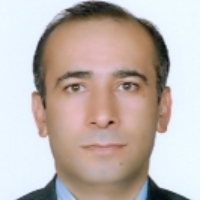The geographical range of the Tati language and its relationship with the Parthian language
Author(s):
Article Type:
Research/Original Article (دارای رتبه معتبر)
Abstract:
The northwestern branch is one of the important branches of Iranian languages, which has many subcategories. This branch has many speakers in large areas of Iran and outside Iran. Among the sub-branches of that language, we can mention Tati, Talshi, Semnani, etc. In recent decades, a lot of research has been done on Iranian languages and dialects and they are being completed every day. Henning, Yarshater, Lecoq, and Stillo have expressed good opinions about the classification of the North, North-West, and Central Iranian languages. researchers inside Iran have also published useful data about the common language in their regions in recent decades. Yarshater and Stillo have made significant classifications about the Tati family. In this article, while stating those categories, several Tati dialects that are not included in the categories of Yarshater and Stilo will be mentioned. The purpose of this research is to read the texts to identify all the dialects of the Tati language family. The main question of this research is that "the languages of the north, northwest and some of the central languages of Iran are the natural continuations of which of the languages of the ancient period of Iranian languages? The research results show that the Parthian language can be assumed as the ancestor of the Tati languages and Madi can be the ancestor of the Kurdish language. What is in this article is just a hypothesis. Of course, by examining all the species known as "Tati", a more complete opinion and classification can be reached.
Keywords:
Language:
Persian
Published:
Journal of Linguistics & Khorasan Dialects, Volume:15 Issue: 30, 2023
Pages:
53 to 94
https://www.magiran.com/p2585527
سامانه نویسندگان
مقالات دیگری از این نویسنده (گان)
-
Investigating Distortion Factors in Oral Memories (Based on the Published Works of Oral Memoirs in Gilan, 1390-1400)
Mohammadreza Shadmanamen, Mohammad Porhelm Bejarpasi *, Alimohammad Moazeni,
Journal of Iranian Islamic Period History,



